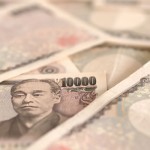USD/JPY continued trading above 100.00 on Friday, as expectations that monetary stimulus programs in the United States, Europe and Japan will remain in place dampened demand for safe haven assets such as the Japanese yen.
USD/JPY reached a session high at 100.31 at 1:15 GMT, also the pairs highest point since September 11th, after which consolidation followed at 100.11, rising 0.09% for the day. Support was likely to be received at November 14th low, 99.14, while resistance was to be seen at September 11th high, 100.61.
Yesterdays testimony by Federal Reserve Bank governor-nominee Janet Yellen indicated that a scale back of central banks stimulus may not occur in December, as was expected, especially after the most recent upbeat non-farm payrolls report, released out of the United States. Such an outlook suppressed haven demand for currencies, such as the yen.
“We have made good progress, but we have farther to go to regain the ground lost in the crisis and the recession”, Yellen said in a testimony on Thursday. “Unemployment is down from a peak of 10 percent, but at 7.3 percent in October, it is still too high, reflecting a labor market and economy performing far short of their potential. At the same time, inflation has been running below the Federal Reserves goal of 2 percent and is expected to continue to do so for some time.”
Yellen also said that banks benchmark interest rate, currently at a record zero to 0.25%, would likely remain low even after policymakers embark on a reduction of monthly monetary easing. The Fed has maintained borrowing costs in proximity to zero since December 2008.
Meanwhile, on Thursday it became clear that Japans preliminary Gross Domestic Product, the widest indicator for economic activity, rose 0.5% during the third quarter of the year, compared to the preceding quarter, after a 0.9% gain in Q2, while experts had anticipated that the GDP will expand 0.4% in Q3. The annualized GDP figure, however, grew 1.9% in Q3, slowing down the pace in comparison with the 3.8% gain recorded in the second quarter and the 4.3% gain recorded during the first three months of the year.
In addition, the index, gauging industrial output in Japan, climbed 1.3% in September compared to August, below expectations of a 1.5% gain, after a month ago production rose 1.5%. The annualized index of industrial production advanced 5.1% in September, following a 5.4% climb in August.
The MSCI Asia Pacific index of regional shares climbed 1.3%, gaining for a second day in a row, which additionally pressured demand for the Japanese yen.
Bank of Japan policymakers are scheduled to hold a two-day policy meeting next week. Three-quarters of economists, participated in a survey by Bloomberg News, project that the bank will add to stimulus during the first half of 2014.
Elsewhere, the yen was lower against the euro, with EUR/JPY cross advancing 0.24% on a daily basis to trade at 134.95 at 8:19 GMT. GBP/JPY pair was gaining 0.37% to trade at 161.30 at 8:21 GMT. Japanese yen has depreciated 1.3% during the past week, or the worst performing currency among the 10 developed-nation currencies, which are tracked by Bloomberg Correlation-Weighted Indexes. The US dollar has remained unchanged, while the euro has climbed 0.7% during the same period.





